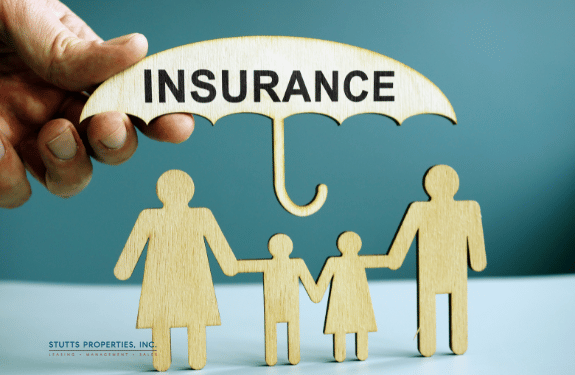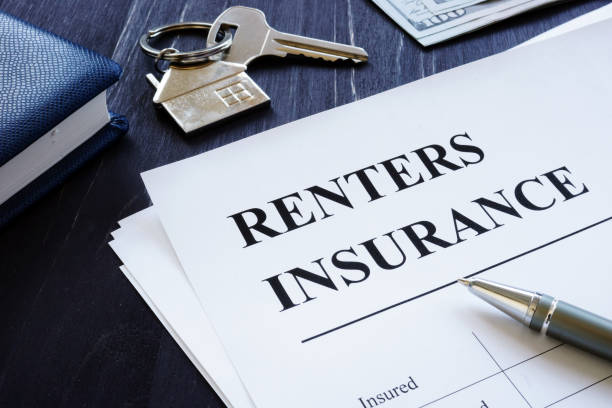Apartment building owners face many risks, from property damage to liability issues. When you have the right apartment building insurance coverage, it safeguards your investment and ensures financial protection. However, apartment building insurance is not one-size-fits-all. Different types of coverage are available, each designed to address specific risks and needs.
In this article, we’ll delve into apartment building insurance coverage types. We will also discuss what each type covers and how they differ. This guide will help you understand which insurance policies are best suited for your property. It also provides clarity on how to protect your building effectively.
1. Property Insurance
Property insurance is one of the most basic forms of apartment building insurance coverage. It protects the physical structure of the building, including common areas such as hallways, lobbies, and roofs. This insurance covers damage from events like fires, storms, vandalism, and other hazards. Property insurance or apartment building insurance is something every property owner should own.
| (Essential Guide to Rental Analysis Property Investors) |
Types of Property Insurance Coverage
Replacement Cost (RC) Coverage
This pays to repair or replace damaged property with materials of similar kind and quality. Even property depreciation is not taken into account. It guarantees that following a loss, your building can be returned to its pre-loss state.
Actual Cash Value (ACV) Coverage
ACV accounts for depreciation. In this case, the insurance company reimburses the value of the damaged property minus depreciation. It results in a lower payout compared to replacement cost but can be less expensive in premiums.
| Complete Guide to Understanding Commercial Property |
Property Insurance Coverage
- Structural damage to the building (e.g., walls, roofs, floors)
- Damage to permanent fixtures (e.g., plumbing, electrical systems)
- Common area repairs after a covered event
Difference between Replacement Cost and Actual Cash Value
Replacement Cost pays the full cost to restore the building to its pre-loss condition. While Actual Cash Value pays the depreciated value of the property, leading to a lower payout.
| How Marketing Can Maximize Your Rental Income |
2. General Liability Insurance
General liability insurance is vital for protecting apartment building owners from third-party claims. This type of insurance covers bodily injuries or property damage that occurs on the premises. For instance, a tenant or visitor can slip and fall in a common area. General liability coverage helps pay for medical expenses, legal fees, and any settlement costs.
General Liability Insurance Coverage
- Injuries to tenants, visitors, or workers on the property
- Legal costs related to lawsuits
- Medical expenses for injuries caused by building hazards
- Property damage caused to others (e.g., neighboring buildings)
Difference: Property insurance focuses on physical damage to the building itself. General liability insurance addresses financial liabilities that arise from tenant or visitor injuries or damage caused to others.
3. Loss of Rental Income Insurance (Business Interruption Insurance)
Loss of rental income insurance is also known as business interruption insurance. It compensates the building owner for lost rental income if the property becomes uninhabitable. Some of these events covered are fire or storm.
This insurance ensures the owner can continue to meet financial obligations. The owner will be able to pay the mortgage even when tenants cannot occupy the building.
Loss of Rental Income Insurance Coverage
- Lost rental income during building repairs
- Additional costs incurred during downtime (e.g., advertising costs for re-renting units)
Difference: This insurance focuses solely on the loss of income rather than physical damage to the property. It is an add-on to property insurance, ensuring that you still have cash flow while the building is repaired.
4. Flood and Earthquake Insurance
Standard apartment building insurance typically excludes coverage for floods and earthquakes. This means that you may need more if your property is in an area prone to these natural disasters. In areas prone to flooding and earthquakes, you’ll need separate flood or earthquake insurance policies.
- Flood Insurance: Covers damage caused by external flooding, such as from heavy rains, storm surges, or overflowing rivers. According to FEMA, flooding is the most common and costly natural disaster in the United States. The US has over 15% of buildings located in high-risk flood zones.
- Earthquake Insurance: This covers damage caused by seismic activity. It includes structural damage and the repairs required because of the shifting ground.
| How to Find the Best Property Management Company |
Floods and Earthquakes Insurance Coverage:
- Flood: Water damage to the building and its contents as a result of external flooding
- Earthquake: Damage caused by tremors, landslides, or ground shifting
- Structural repairs and replacement costs
Difference: Property insurance covers internal issues like burst pipes. Flood and earthquake insurance covers external forces of nature. These policies are crucial if your building is in a region prone to these hazards.

5. Umbrella Insurance
Umbrella insurance acts as an extension of your liability coverage. It provides an extra layer of protection beyond the limits of your standard general liability insurance. It comes into play when the costs of a claim exceed the limits of your existing liability coverage. This is especially important for owners of larger apartment complexes, where the risk of significant liability claims is higher.
Umbrella Insurance Coverage
- Liability claims exceeding the limits of general liability insurance
- Legal defense costs
- Settlements and judgments that surpass standard policy limits
Difference: Umbrella insurance doesn’t replace general liability insurance; it adds extra coverage. It only kicks in when your existing liability policy is maxed out. It provides a buffer against larger-than-expected claims.
6. Workers’ Compensation Insurance
If your apartment building employs maintenance workers, security personnel, or any other staff, workers’ compensation insurance is necessary. It covers medical costs, rehabilitation expenses, and lost wages if an employee is injured while working on your property.
Workers’ Compensation Insurance Coverage
- Medical bills and rehabilitation for injured employees
- Lost wages during recovery
- Legal fees if an injured worker sues the building owner
Difference: In most states, workers’ compensation is required by law, depending on the number of employees. It protects the building owner from lawsuits related to workplace injuries.
7. Building Ordinance or Law Insurance
Building ordinance or law insurance is an additional apartment building coverage. It helps cover the costs of rebuilding current codes after a loss. Local building codes may have changed since the building was originally constructed. This policy helps cover the extra costs associated with bringing the building up to code.
Building Ordinance or Law Insurance Coverage
- Demolition costs of undamaged parts of the building to comply with local ordinances
- Increased rebuilding costs to meet current codes and regulations
- Replacing outdated systems (e.g., electrical, plumbing) to comply with modern standards
Difference: Standard property insurance may not cover updating the building to meet current codes. Building ordinance insurance fills that gap, ensuring compliance with new laws during reconstruction.
8. Equipment Breakdown Insurance
Essential building systems often suffer mechanical breakdowns. This type of apartment building insurance coverage protects the owner from the cost of repairing or replacing. This includes HVAC systems, boilers, elevators, electrical systems, and other critical infrastructure.
Equipment Breakdown Insurance Coverage:
- Repair or replacement of mechanical systems (e.g., HVAC, elevators)
- Loss of rental income from system failure
Difference: Unlike general property insurance, which typically covers damage caused by external factors (like a storm), equipment breakdown insurance specifically addresses internal mechanical failures.
Conclusion
Owning an apartment building comes with unique risks, but the right insurance coverage can protect against financial losses. Understand the types of apartment building insurance coverage you need. This is crucial to ensure that your investment is fully protected.
Each type of insurance has a distinct role. They each cover different aspects of risk, from physical damage to lost income and liability. As an apartment building owner, you should evaluate your specific needs and risks. This will determine the right mix of coverage for your property.
With the right combination of policies, you can mitigate potential financial disasters while keeping your building, your tenants, and your income safe.
A Comprehensive Guide to Choosing the Right Insurance Coverage for Apartment Building Owners
Everything you need to know on how an apartment can cancel your rental insurance
Frequently Asked Questions on Apartment Insurance
What is apartment complex insurance?
Apartment complex insurance is a policy designed to protect landlords and property owners from financial losses due to damages, liability claims, and tenant-related risks.
What does apartment complex insurance cover?
Apartment complex insurance typically covers property damage, liability protection, loss of rental income, and sometimes additional coverages like vandalism and fire protection.
How much does apartment complex insurance cost?
The cost for apartment complex insurance depends on some factors. I varies depending on location, property size, coverage limits, and risk factors such as crime rates and natural disasters.
Is apartment complex insurance mandatory?
Apartment complex insurance is not mandatory by law. While not legally required, mortgage lenders often mandate apartment complex insurance coverage to protect their investments.
Does apartment complex insurance cover tenant belongings?
No, Apartment complex insurance does not cover tenant belongings. Tenants need renters insurance for their personal belongings. The apartment complex insurance policy primarily protects the building structure and liability risks.
How can I get an apartment building insurance quote?
You can obtain an apartment building insurance quote by contacting insurance providers. You can compare online quotes, or work with an insurance broker specialized in apartment buildings.
What factors affect an apartment building insurance quote?
Factors that affect apartment building insurance quote are:
- building size
- building location
- claims history
- security measures
- the type of coverage required.
How long does it take to get an apartment building insurance quote?
How long it takes to get an apartment building insurance quote depends on the insurance company. Most insurance companies provide instant online quotes, while others may take 24–48 hours for a detailed assessment.
Can I get an apartment building insurance quote without an inspection?
You can get an apartment building insurance quote without an inspection. Some insurers provide preliminary quotes without an inspection, but a full policy may require an in-person assessment.
What’s the cheapest way to get an apartment building insurance quote?
The cheapest way to get an apartment building insurance quote is by price comparison. Compare multiple providers, increase deductibles, and bundle policies to lower costs.
What is apartment owners insurance?
Apartment owners insurance is designed to protect landlords and property owners from financial losses due to property damage, liability claims, and loss of rental income.
What does apartment owners insurance cover?
Apartment owners insurance typically includes:
- building structure coverage
- liability protection
- loss of rental income
- and sometimes legal fees.
How much does apartment owners insurance cost?
Apartment owners insurance cost vary based on location, building condition, tenant occupancy, and coverage limits.
Do I need apartment owners insurance if my property is paid off?
Yes, it helps protect your investment against fire, vandalism, and liability claims.
Does apartment owners insurance cover flooding?
Standard policies do not cover flooding; separate flood insurance is required.
What are the top apartment building insurance companies?
Top insurers include State Farm, Allstate, Farmers Insurance, Travelers, Liberty Mutual, and Nationwide.
How do I choose the best apartment building insurance company?
Look for financial stability, customer service ratings, customizable coverage, and competitive pricing.
Do all insurance companies cover apartment buildings?
No, some specialize in residential homes or commercial properties and may not offer apartment building insurance.
Can I switch apartment building insurance companies anytime?
Yes, but check cancellation fees and compare policies before switching.
What should I look for in apartment building insurance companies?
Key factors include coverage options, premium costs, exclusions, claims process, and customer reviews.
Does apartment building insurance cover dog bites?
Most standard policies exclude dog bites. Landlords may need additional liability coverage or require tenants to have renters insurance.
Can landlords be sued for tenant dog bites?
Yes, landlords can face lawsuits if they allow aggressive breeds or fail to enforce pet policies.
Which insurance companies cover dog bites under apartment building insurance?
Some providers offer animal liability coverage or umbrella policies to cover dog-related claims.
How much does dog bite insurance cost for apartment buildings?
Costs vary but typically range between $100–$500 annually, depending on the risk factors.
What dog breeds are excluded from apartment building insurance?
Many insurers exclude Pit Bulls, Rottweilers, Dobermans, German Shepherds, and Akitas from coverage.
What type of insurance do I need for an apartment building?
You need property insurance, liability insurance, loss of income insurance, and sometimes flood or earthquake insurance.
What does apartment building insurance protect against?
It covers fire, vandalism, storms, liability claims, loss of rental income, and sometimes theft and water damage.
Is apartment building insurance tax-deductible?
Yes, property owners can deduct insurance premiums as a business expense.
Does apartment building insurance cover tenant damage?
It depends on the policy. Some cover accidental tenant damage, but intentional damage may not be included.
How often should I review my apartment building insurance?
Annually, or whenever you make upgrades, add security features, or change property ownership.
Why do apartment building owners need insurance?
To protect against property damage, legal liabilities, loss of rental income, and natural disasters.
What is the best insurance for apartment building owners?
It depends on property size, location, and risk factors. Commercial property insurance and landlord insurance are commonly used.
How much insurance do apartment building owners need?
Owners should have enough coverage to rebuild the property and cover liability claims.
Does insurance for apartment building owners cover employee injuries?
No, a separate workers' compensation policy is needed for employees like maintenance workers.
Can apartment building owners require tenants to have renters insurance?
Yes, many landlords require renters insurance to reduce liability risks.


